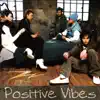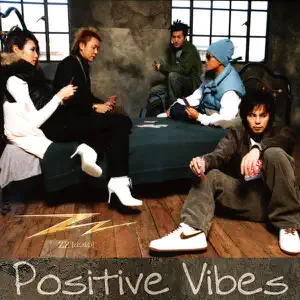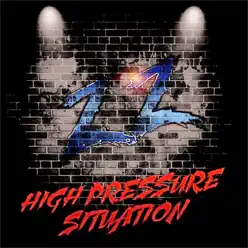


About ZZ
Rock-rap group ZZ formed in the industrial city of Fuji in Shizuoka Prefecture, Japan, in 1998, soon relocating to the much larger Shizuoka, where they built up a local following playing the city's clubs. Within two years the band was playing at venues in Tokyo's Shimokitazawa, an area that is a mecca for underground bands, sharing the bill with the likes of popular rap-metal act Rize. Even so, ZZ's pop sensibility means they have more in common musically with the sound of the mega-selling, self-styled "mixture hip-hop" group Orange Range than the harder alternative metal of Rize. After independently releasing a mini-album and single in 2000, the career of ZZ (comprised of vocalist Sotaro, guitarist Kohsuke, pianist Erichi, bassist Kyama, and drummer Matsuura) gained momentum when Japan's biggest monthly rock magazine, Rockin' on Japan, glowingly reviewed their second single, "Brightest," in early 2001. Its follow-up, "Himawari" (Sunflower), went Top 75 in the Usen charts and was picked up by one of Tokyo's major commercial radio stations, Bay FM. The station would go on to grant the group its own regular program, titled Na Na Na Now Young, in October of that year, but not before they had dropped their debut album, Absolute Beat Complex.nnZZ made the step up to large independent label Avex in 2003 for the release of the single "Rhythmist," which was the band's biggest hit to date, going Top Ten in the Usen charts. The single was a taster for the album Definitive Energy Flow, which the group supported by going on its first nationwide tour. Having had a couple of songs featured as opening/ending songs on Japanese television programs, the group scored a minor coup when its tune "A to Z" was chosen as the ending song to the animated adventure television series One Piece, which, like many popular anime programs, has been adapted into English, Chinese, and Korean. Appropriately, ZZ played their first live shows in South Korea in 2004. (Two years earlier they had played to 8,000 people at a music festival in Dalian, China.) For the 2004 single "Just Only One," ZZ collaborated with Kaori Ueda, aka DJ Kaori, a hip-hop DJ who has played at parties for the likes of Sean "Diddy" Combs. The track was featured on their second album for Avex, 2005's Generation Hip Innocence. Following its release, the band performed its first shows in the United States, capitalizing on its anime associations by playing at the anime conventions Fanime-Con in San Jose and Dallas' A-Kon, one of the three biggest such conventions in the U.S. Not even an association with the Japan national team's ill-fated 2006 World Cup campaign -- having recorded the supporters' song "Samurai Blue" (replete with terrace-friendly "oh oh" chants and cries of "Nippon! Nippon!") -- dimmed the group's prospects, the band continuing to play regular live shows throughout the year. ZZ joined an increasing number of Japanese bands by releasing their songs -- in the case of ZZ the majority of their back catalog -- digitally. ~ David Hickey
ZZ discography
17 discs

High Pressure Situation - Single
2019

Jetzt oder Nie (feat. Tjay) - Single
2018

Cannabusiness (feat. Lizzo) - Single
2018
See all discs
The most viewed
ZZ songs in January
Top Artists
About us
• What is CANCIONEROS.COM/LYRICS
• Contact us
• How to collaborate
Notes


